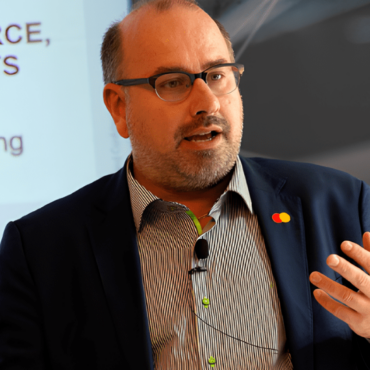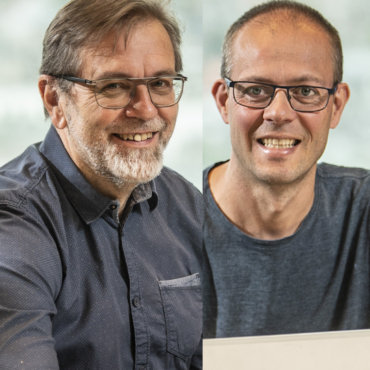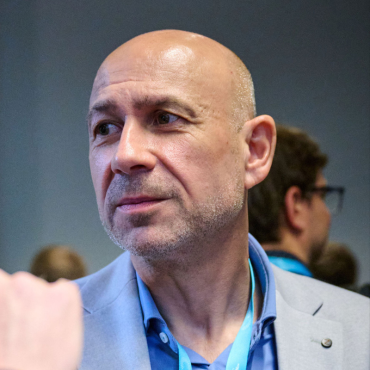The Coalition allows companies to collaborate among themselves. It has a leading role in B2B as well as B2C awareness, and in providing educational options. In short, the Coalition brings together people who are willing to contribute
Mastercard, a hidden gem in the cyber security industry
As global lead, Rigo Van den Broeck leads a team of 250 people. “Within Mastercard, I am responsible for a full-fledged company consisting of expert sales, an engineering department, a marketing team, etc.,” he explains. Their job is to build out Mastercard’s cybersecurity section in Europe.
Because Mastercard is one of the most attacked companies in the world, it puts great effort into improving cybersecurity. “We see many links between fraud and cyber in our business operations, which is why we want to offer solutions to prevent this. Mastercard’s mission is ‘trusting commerce’, which means that companies must be able to do business securely with each other, on a global level. Therefore, we have built an ecosystem in cybersecurity, making sure both businesses and their suppliers are protected, cybersecurity-wise.”
Trust the system
The company’s approach to implementing better cybersecurity starts with guidance. “The first step is to assess our customers’ cyber risk exposure, in order to increase the awareness of emerging risks, cyber vulnerabilities and threats. We continuously monitor 19 million entities around the world. The next step is to protect their assets against an attack by providing innovative solutions to secure their digital ecosystem.” To make the Belgian market more secure, Mastercard is actively working on the question of how to train cyber talent. “Therefore, we map out the training and education needs of the local market.”
And this is just the beginning. Mastercard is already a big player but is a hidden gem in the cybersecurity industry. “What we do, is less known today. In order to use a system, you have to trust it. We have already achieved that with our cards; our ambition is to do the same with our cybersecurity solutions. We are therefore collaborating on technology standards for data and cybersecurity. This is how we demonstrate that we have a high level to contribute to the ecosystem.”
Why do it alone?
Mastercard’s HQ for all European operations is in Waterloo, so the company went looking for a strong Belgian ally, which they found in the Cyber Security Coalition. “We believe that you cannot tackle cybersecurity alone, as an individual company. It needs to be a collaboration that ensures we strengthen and secure each other. From exchanging information, to providing training, creating awareness, and sharing solutions.”
That is why Mastercard joined the Cyber Security Coalition, to exchange information between local businesses and consult each other in times of crisis. “For our company, it is important to have those interrelationships, because without electricity, for example, you cannot pay with our card.”
European maturity
The Cyber Security Coalition also facilitates engagement with stakeholders such as Belgian governments, helping them in making the right decisions. “But the Coalition allows companies to collaborate among themselves, too. It has a leading role in B2B as well as B2C awareness, and in providing educational options. In short, the Coalition brings together people who are willing to contribute.”
Belgium is the cyber centre of Europe, so the Coalition should dare to play a bigger role at European level, according to Rigo: “Why don’t we cooperate more with cyber coalitions of other countries? In that way, we could get international policies to a higher maturity level.” Europe is already quite far advanced in terms of regulating cyberspace. “It is important that legislation remains implementable and feasible. The biggest danger is that we set our standards too high, causing companies to be too vulnerable to today’s rapidly increasing dangers.”







